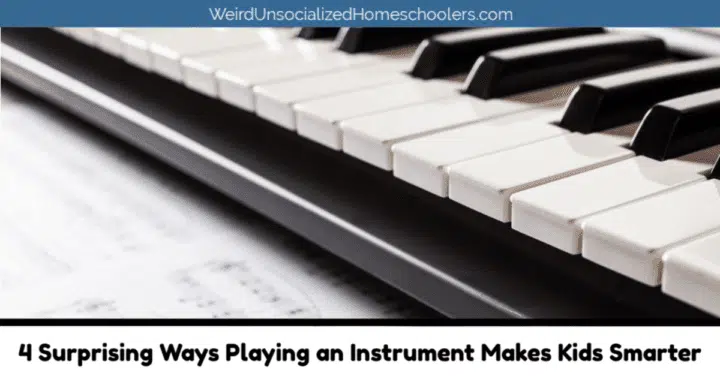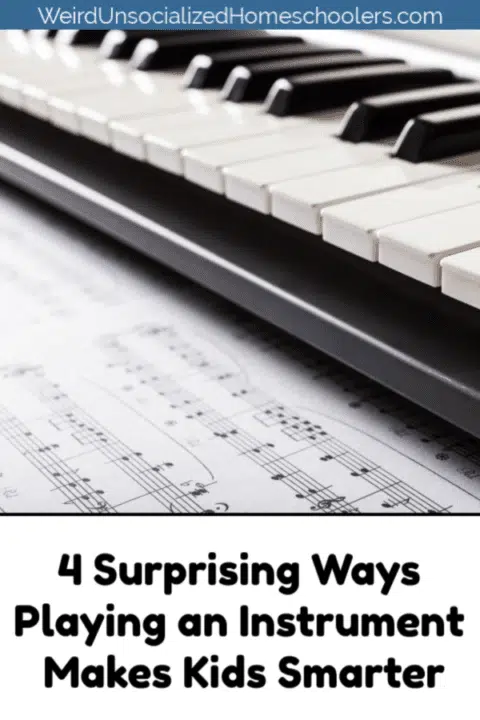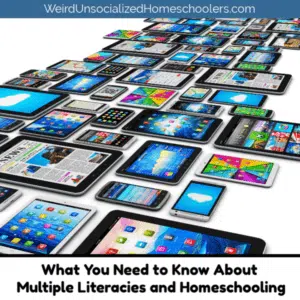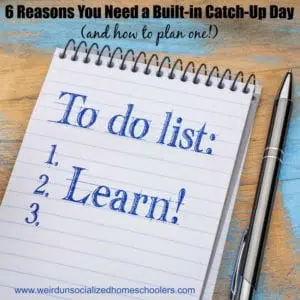4 Surprising Ways Playing an Instrument Makes Kids Smarter
There are many benefits of playing a musical instrument, but the academic benefits may surprise you. Learn why playing an instrument makes kids smarter in this article sponsored by Musiah.
Some people cringe when they hear kids practicing musical instruments – especially the recorder when it rewards off notes with its ear-piercing squeal. When you’ve got a kid who can play, though, music practice is a treat for the ears – even on a recorder.
Josh’s teacher liked to challenge her oldest students, the 4th-graders. Every few weeks, she’d play a new piece for them once or twice before they left class. Their mission was to learn to play the song by ear. The teacher usually gave them a couple of weeks to figure it out.
Josh never needed that long. Most weeks, he was playing it by the time we got to lunch at – where else? – the Chick-fil-A located about five minutes from the church where music lessons took place.

Why Playing an Instrument Makes Kids Smarter
I loved taking the kids to music class because of the many benefits of playing a musical instrument. Playing an instrument:
- builds confidence
- reduces stress
- improves blood flow to the brain
- strengthens motor skills
- improves concentration
However, one of the most interesting benefits of playing a musical instrument may be its effect on academic performance.
Academic Benefits of Playing a Musical Instrument
Multiple scientific studies point to increased academic performance for kids (and adults) who play an instrument. I love the quote from a TED-Ed video about the benefits of playing an instrument: “Playing music is the brain’s equivalent of a full-body workout.”
Time Management
Because kids who want to develop their musical skill must practice regularly, they have to develop strong time management skills. Playing a musical instrument also improves a student’s planning and organizational skills.
Improved Reading Skills
Music and reading rely on the same brain connections, so learning to play an instrument can help kids become stronger, better readers. This is great news for kids with learning struggles because playing an instrument improves speech processing and learning for kids with dyslexia. (And, for us old folks, it can protect the brain against dementia.)
Increased Math Skills
Lynn Kleiner, the founder of Music Rhapsody, told Parents magazine, “Music and math are highly intertwined. By understanding beat, rhythm, and scales, children are learning how to divide, create fractions, and recognize patterns.”
Learning to play an instrument also enhances a student’s spatial awareness and abstract reasoning skills, which are vital for math, science, and engineering.
Improved Cognitive Skills
Playing a musical instrument improves the brain’s reasoning and problem-solving skills. It can improve memory, attention, and the brain’s executive functions which include decision-making, empathy, sequencing, and self-control.

Online Piano Lessons
When it comes to music instruction, two of the biggest challenges for homeschooling families are finding an instructor and getting a child to and from practice. That’s why I get excited to discover resources such as piano lessons online with Musiah.
Musiah is an online piano lessons software that uses AI technology. Because AI responds accurately and precisely to your student, it’s like having an actual piano teacher in your home. The lessons self-adjust so they’re tailored to your student and provide instant feedback.
And, it’s great for kids and adults because you can play in story mode (as a character in a story) or pure mode (no story).
The Musiah lessons were explicitly designed to maximize the academic benefits of learning an instrument and include:
- note reading
- scales
- chords
- technique
- efficient practice
- ear training
- rhythm
- memory training
- music theory
- performance skills
Musiah lessons are extremely reasonably-priced for families and individuals. You can give them a try to see if they’re right for you with the Musiah piano lessons 14-day free trial.
All you need is a MIDI keyboard, a USB cable or Bluetooth connection, and a computer or iPad. No keyboard? No problem! Use the virtual keyboard in the Musiah app.
So, if you or your kids have ever wanted to learn piano – or you just want to take advantage of the academic benefits of playing a musical instrument – give Musiah a try. I’d love to know what you think!
You Might Also Like
Kris Bales is a newly-retired homeschool mom and the quirky, Christ-following, painfully honest founder (and former owner) of Weird, Unsocialized Homeschoolers. She has a pretty serious addiction to sweet tea and Words with Friends. Kris and her husband of over 30 years are parents to three amazing homeschool grads. They share their home with three dogs, two cats, a ball python, a bearded dragon, and seven birds.





